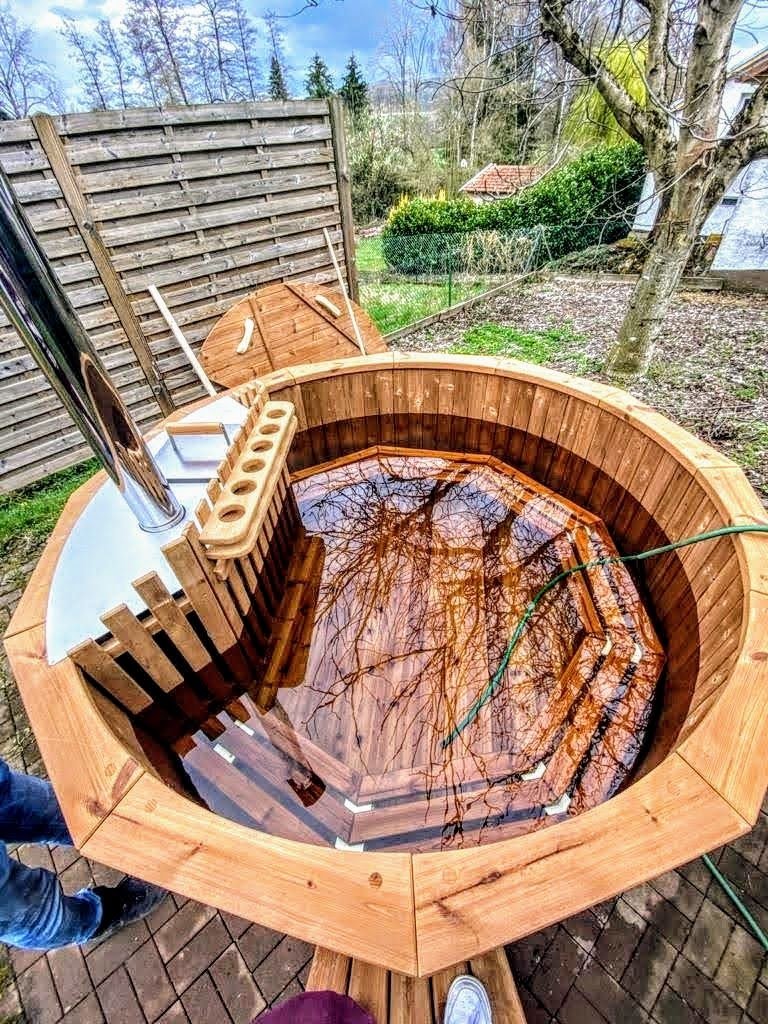It’s a great idea to enjoy time in a pool or hot tub—good for body and mind, exercise, staying in shape, and even therapy. But hygiene matters: water can harbor bacteria, so it’s important to understand your disinfection method and stay safe.
You want to avoid exposure to harmful contaminants. Water treatment typically relies on chlorine or saltwater systems. Below you’ll find the myths, a brief history of treatments, safety notes, and clear pros and cons to help you decide. For broader ownership tips, see what to know before owning a hot tub and our eco-friendly hot tub tips.

Salt Water Pool Myths
Saltwater pools and hot tubs are popular, but they’re not chlorine-free. Salt systems use chlorine generators that apply electricity to produce a disinfectant from salt. In practice, “chlorine-free” saltwater pools are rare because salt systems still generate chlorine to sanitize the water.
Short History of Water Treatments
Over the last century, several water treatments emerged. Chlorine dates back to the early 1900s. Ozone began with drinking water and moved to pools in the 1960s–70s. UV light has been used to target viruses and bacteria. Saltwater systems began in Australia to generate chlorine on site. Newer approaches like Direct Hydroxyl Injections are also used to sanitize water. Hot tubs themselves have a long tradition—bathing and hot springs have been enjoyed since ancient times for relaxation after physical activity.
Safety Is Essential
Water can be a breeding ground for viruses and bacteria, so disinfection is essential in pools and hot tubs. Requirements vary between hot and cool water, including target chlorine levels and safety practices.

Pros and Cons of Chlorine Water Treatment
Pros: Cost-efficient, affordable, requires less upkeep, lasts longer in use, and doesn’t damage the pool or hot tub when used properly.
Cons: Some people may be sensitive to chlorine (skin or eye irritation). High levels of chlorine gas can be harmful, and the odor can be unpleasant.
Pros and Cons of Salt Water Treatments
Pros: Gentler feel on skin and eyes, supports buoyancy, and tends to have less unwanted odor.
Cons: Systems are expensive to install and maintain, can allow bacteria at certain levels, and salt accelerates corrosion and rust, which can damage pools and hot tubs.

Which Is Better: Salt Water or Chlorine?
While both have merits, chlorine is generally the more efficient and cost-effective option with less upkeep and longer-lasting results. Salt systems usually cost more to install and maintain, and parts/replacements are pricier. They also tend to run lower chlorine levels, which can permit more bacteria, and salt can drive corrosion.
Conclusion
For most owners, chlorine remains the reliable, efficient, and economical method for pool and hot tub safety. It’s well-proven over time and helps control bacteria effectively.
How to Choose Between Salt Water and Chlorine
- Decide your priority: upfront cost & upkeep (chlorine) vs. gentler feel (salt).
- Consider corrosion risk: salt can accelerate rust on equipment and surrounds.
- Assess maintenance time: chlorine generally needs less ongoing attention.
- Plan hygiene: match your system to good cleaning habits and safe water changes.
- Budget for the long term: include installation, consumables, and parts replacement.
FAQ: Salt Water vs Chlorine
Are salt water hot tubs chlorine-free?
No. Salt systems generate chlorine electrically, so they are not chlorine-free.
Is chlorine safe for hot tubs?
Yes, when used correctly. It’s a proven disinfectant for controlling bacteria and viruses in water.
Why do some people prefer salt water?
It can feel gentler on skin and eyes and usually has less noticeable odor.
What are the main drawbacks of salt water?
Higher install and maintenance costs, potential for bacteria at certain levels, and increased corrosion risk.
Which option is more cost-effective?
Chlorine is generally more affordable to install and maintain and requires less upkeep.


